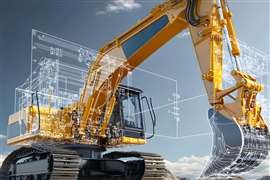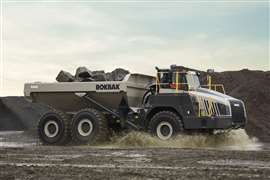The changing nature of construction disputes
15 March 2022
Pinsent Masons’ Simon Plunkett examines industrialised construction and the emergence of new kinds of disputes
Political, economic, social and environmental factors are leading the construction sector to embrace industrialised construction. This should enable better management of projects, reducing the number of disputes that commonly impact on successful delivery.
However, new kinds of disputes are likely to the emerge from the move towards industrialised construction. here these disputes arise, they are likely to be on a larger, more strategic scale, possibly spanning multiple projects and geographies.
New forms of disputes
Some types of dispute which are currently less familiar to the sector may well become a more regular feature. One example of this could be disputes between contractors and technology providers working in new collaborations. These arrangements may be subject to contractual arrangements that have more in common with commercial contracts and purchasing agreements than with the more traditional construction and engineering forms.
These disputes could arise from supply problems, defects, product recalls, or other product liability issues. We are already starting to see signs of this in parts of the construction industry where supply chains are limited and products standardised, such as in offshore wind. To manage the risk of these issues becoming business critical, contractors and others in the supply chain will want to explore liability caps and other contractual protections, as well as insurance.
Output-based disputes relating to the operation of the infrastructure asset, as we currently see in PPP/PFI contracts, could also become more prominent with the industrialisation of construction processes – including disputes driven by ‘net zero’ carbon requirements. This risk should spur on employers and the supply chain to better understand what standards are adopted and how they can be met.
Contracts are also more likely to focus on the output from the whole life of infrastructure assets in future rather than the construction phase alone. This raises questions about how liability is determined across the life of the asset and for risk sharing under the contract.
We also anticipate a rise in disputes over intellectual property rights in a world where data and technology are significant assets and will become increasingly valuable on construction projects. Disputes over the control of data, rights to use data and the management of data – including around security and privacy – are likely to be key area.
Thought will also need to be given to variation provisions and whether and how manufactured components can be changed. In an industry where off-site manufacturing will become more prevalent, changing components in one project has the potential to impact a whole production line that produces components for other projects. This is an area where disputes could arise and warrants consideration of whether a bespoke approach to variations is needed in project contracts.
Off-site manufacturing raises a raft of geographical issues. Government-led projects in developing economies often have significant local content and job creation requirements. On-site installation of complex components manufactured off-site may require local labour force upskilling and project contractual documents to allow for that, failing which significant disputes can arise. Off-site manufacturing in countries where labour and materials are cheaper also brings with it foreign exchange risk, which can lead to disputes.
One of the other impacts we anticipate from the industrialisation of construction processes is that tier one contractors may take on ‘fitness for purpose’ obligations for components that have been standardised. It may not be possible to pas these obligations along the supply chain. Contractors will need to focus on product suitability and be cautious when issuing warranties and agreeing liability caps.
Some forms of dispute are likely to become less common
Whilst new types of construction disputes are likely to emerge from the industrialisation of the industry, others may become less common.
Off-site manufacturing and standardisation should help to reduce the frequency of defects disputes associated with on-site installation. In some jurisdictions it can sometimes be a struggle to secure the quality of workmanship required and for main contractors a major pre-occupation is the availability of labour and necessary skill levels. Industrialised production offers an opportunity to develop skills, and thus improve quality, through effective training of a smaller and more dedicated workforce.
Off-site manufacturing undoubtedly provides a safer, more controlled environment, which brings the significant benefit of reducing health and safety incidents. These health and safety benefits are likely to be greatest where extreme on-site climatic conditions can be mitigated by maximising off-site manufacturing and reducing the number of people physically required on site.
Off-site factory assembly of major components allows operations to be conducted in a safer, healthier environment, leading to more efficient, productive use of labour; less wastage and loss of materials and supply items; adherence to higher specifications using quality tools and machinery operated by a trained, healthier and happier workforce.
Improved technology such as live data monitoring should help parties reduce the scope and better understand the cause of their disputes if and when they arise.
Although the increase in standardisation brings many positives, it also has the potential to stifle innovation, so it remains very important for risk to be properly allocated to ensure the industry continues to push the boundaries, not least to deliver on the zero carbon requirements that will increasingly become a major delivery requirement across the global industry.




